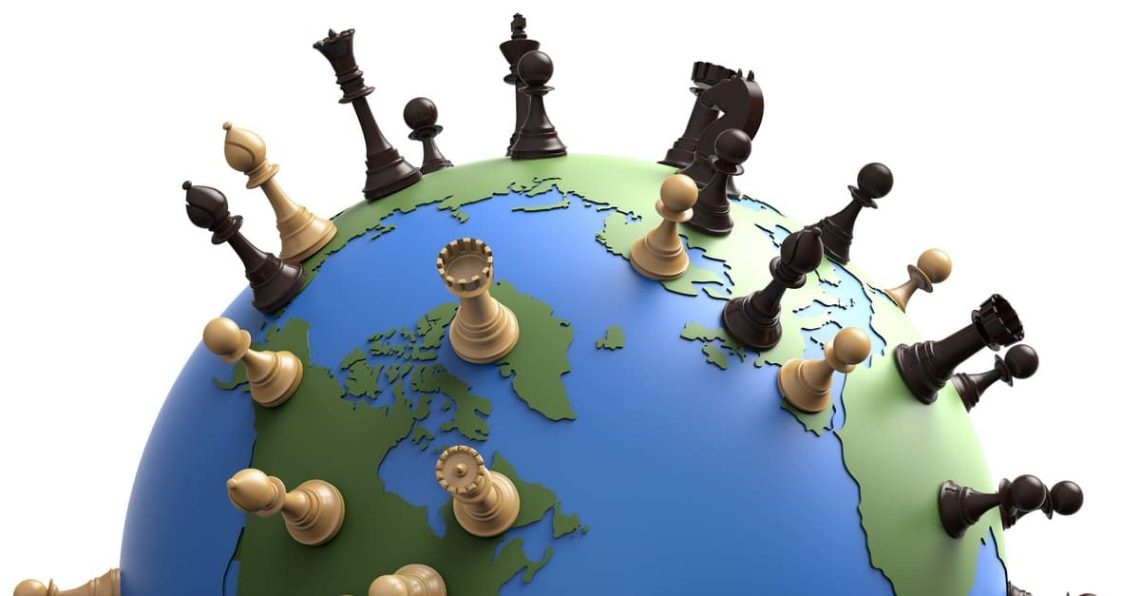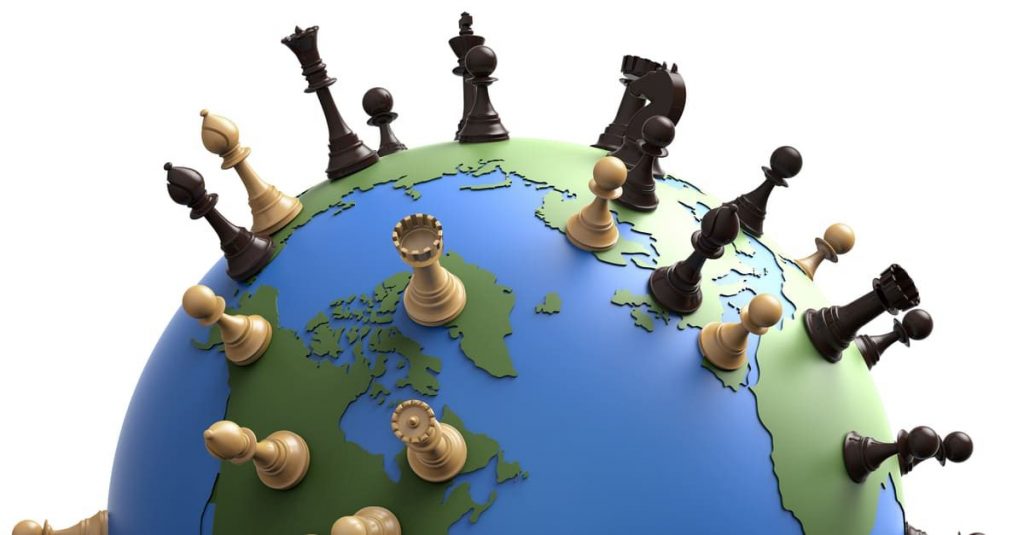Research & Studies


By Ivana Stepanovic (researcher of IASK) and Ravid Taghiyev (researcher of iASK)
As it happened: notes from the 4th UNESCO MOST Winter School panel “Rethinking Europe and its Geopolitics in the Contemporary Era” on the day of the outbreak of war in Ukraine on February 24th 2022.
While we were composing the program of the 4th UNESCO MOST Winter School, we couldn’t have imagined the events that would start unfolding on the last week of February 2022. We scheduled the panel titled “Rethinking Europe and its Geopolitics in the Contemporary Era” for the 24th of February 2022 back in September last year. At that time, we had no idea that we will be talking about the conflict between Russia and Ukraine in front of an audience that included students from post-Soviet countries. Many of them were in tears. Some of them joined us on Zoom from shelters in Kyiv. It was heart-breaking.
Early that morning, Russia’s president Putin announced a “special military operation” in Ukraine. At 5 am, Russian forces launched missile attacks on multiple locations around Kyiv and Kharkov. News agencies across the globe have started reporting about the events and called Russia’s military operation “war”. Have we woken up to a new world that day? This was the question on everybody’s minds on the fourth day of our UNESCO MOST Winter School.
The panel was chaired by Sanja Tepavcevic, a research fellow at iASK. She was born and raised in former Yugoslavia (Bosnia and Croatia), until the violent conflict of the Yugoslavia’s dissolution forced her family to move to Russia, where she studied and worked for almost two decades
The New Iron Curtain
American political scientist, academic and former head of the American University of Central Asia, Andrew C. Kuchins, reflected on the events from the end of the Cold War up until today aiming to shed light on current events from a different perspective. He said that ever since the fall of the Berlin Wall, the reunification of Germany and the collapse of the Soviet Union, the question was how to manage European security in the future. “The great enemy, USSR collapsed, and George W Bush called for a Europe whole and free, but we knew that this Europe cannot exist unless Russia feels comfortable in it with its voice being heard and respected”, he said. “We relied on NATO to take the lead and be in charge of Europe’s security architecture, but the question of its expansion came quite rapidly. It claimed to be a defensive alliance, but frankly, it wasn’t. Russia as a continental power always had a territorial sense of security. NATO was designed to contain it, and problems started when it started getting closer to Russia by pushing hard for the membership of Georgia and Ukraine. Putin’s response was that Ukraine is not a real country. We can disagree with him, but that was his view and his way of putting a red line. What we see right now is the end of the efforts to make Europe whole and free. We are entering a new phase and witnessing the formation of a new iron curtain which will be either on the western border of Ukraine or between the east and west”. Professor Kuchins ended his speech with the words: “Europe has to take a more independent stance for this to be a safer world”.
Europe’s raison d’être
Edouard Gaudot, a historian and political scientist who is currently the Adviser for the Green Group in the European Parliament has talked about the future of Europe. He said that the current crisis has shown how the EU can take a united front when dealing with geopolitical issues. Hungary’s choice to support other member states in imposing sanctions on Russia and condemning their attack on Ukraine is one of the best examples. His main question was what Europe’s raison d’être is today.
“Europe has a mercantilist approach to the world”, said Gaudot. He stressed that the EU has commercial interests in addition to its normative power, and that this is what makes it strong. “The idea of trade is politicized”, he added. However, over the past two decades, violence and interlinked crises have shown Europe’s inability to think collectively. “We need to learn the language of power again”. Gaudot also posed three crucial questions to Europe: who is the driver, where is it going and what is the purpose? He concluded that instead of the EU Parliament, the big states such as Germany and France are the drivers, while the destination is a common cultural space. The purpose, however, is not determined. He concluded by defining the key task for Europe: “we need to find of Europe’s raison d’être, the reason why we want to live together”.
European Values
Boglárka Koller, the Vice-rector for International Affairs at the National University of Public Service in Budapest emphasized that the conflict in Ukraine has started in the times of multiple crises in Europe, including the economic crisis, institutional crisis, the politicization of public opinion and the crisis of trust, the ongoing Brexit process, migration crisis and the Covid-19 pandemic. She has asked what kind of Europe will emerge from these interlinked crises and whether the conflict between Russia and Ukraine can result in a stronger union.
One of her main points was that EU policies are increasingly values-based. She said that this is mirrored in the enlargement process because the EU is assessing whether candidate countries comply with European values such as the rule of law, respect for minorities and others. This means that the EU has a task to further define what these values are. Since the EU’s environment has changed, it is important to assess the role of foreign powers in the EU. The conflict in Ukraine has shown that normative power is no longer enough to preserve peace.
The Language of Power
Emil Brix, Austrian diplomat, and historian, currently the Director of the Diplomatische Akademie in Vienna, said that Europe’s normative power is no longer as relevant as it used to be. Just days before Germany’s chancellor Olaf Scholz stated that his country’s priority is investing in armament and military, Emil Brix has said that Europe needs real power in addition to normative power. “We need a sovereign Europe”, he said, “because we have replaced the power of language with the language of power”. He also claimed that Europe needs a major paradigm change and that the geopolitical reconfiguration of Europe is impossible without taking China and Russia into consideration. Redefining Europe is also impossible without understanding Putin’s language of power. In the case of Ukraine, he included memory in political decision-making. History is back, said Brix, and it is being used politically.
The future of Europe is in its enlargement, unification and creating common cultural values. Brix emphasized that the EU has the power of attraction and that it is currently striving to extend its influence to neighboring countries. “The enlargement process is a step-by-step attempt to use this attractiveness of the EU”, he said.